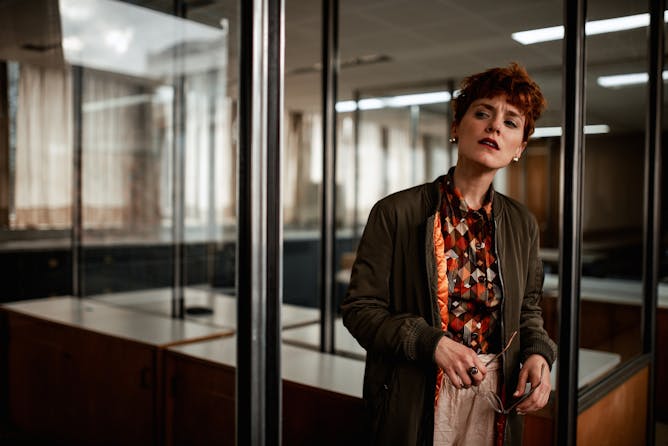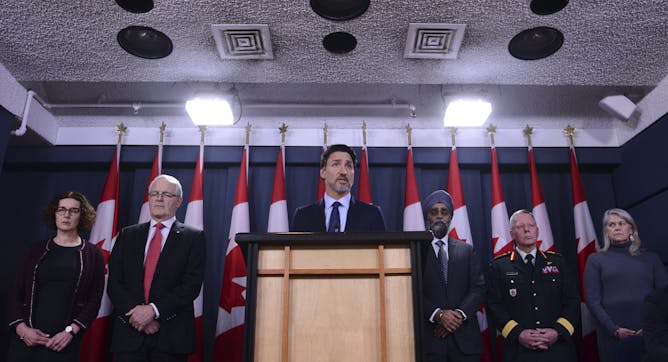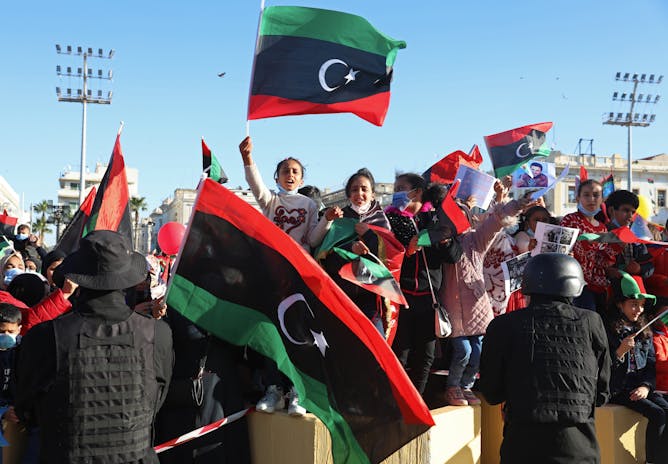|
Many of us have had the misfortune of working for an abusive boss or in a toxic workplace. Given we spend so many of our waking hours working, a boss who is a demeaning bully can have a serious impact on our mental and physical well-being. And yet we often watch in dismay as those supervisors are promoted or face no repercussions for well-documented abusive behaviour.
Today in The Conversation Canada, Erica Mildner of the University of British Columbia argues that toxic bosses may be the next to face #MeToo-type scrutiny and reprisals as we head back to the office following the COVID-19 pandemic. She writes: “If you were required to work in a literal toxic workplace, filled with noxious gases, you would expect a gas mask. Workers who face daily dehumanizing and hostile treatment deserve similar guarantees of protection.”
Also today:
Regards,
|

Toxic workplaces and abusive bosses can make our lives miserable and seriously erode our physical and mental well-being. As we return to the office following the COVID-19 pandemic, time may be up for bad bosses.
(Pixabay)
Erica Mildner, University of British Columbia
Could the resignation of Canada's governor general represent a watershed moment for workers’ rights?
|

The principles of diversity, equity and inclusivity are important, and taking action so that Canadian politics are not dominated by one segment of society is necessary to democratize our institutions.
THE CANADIAN PRESS/Sean Kilpatrick
Celina Caesar-Chavannes, Queen's University, Ontario; Alex Marland, Memorial University of Newfoundland
If we are to transform the culture of Canadian political institutions, we must take immediate, deliberate and intentional action by engaging more women, BIPOC and marginalized people.
|

Under tight security, Libyans mark the 10th anniversary of their 2011 uprising that led to the overthrow and killing of longtime ruler Moammar Gadhafi in Martyrs Square, Tripoli, Libya.
(AP Photo/Hazem Ahmed)
Brian McQuinn, University of Regina
Ten years after the Arab Spring, hope has given way to turmoil as Libyans have watched duelling governments and armed groups fight over the country's oil riches. Is a new chance for peace afoot?
|

Dostoyevsky’s story ‘The Double’ explores the uncanny theme of a replica of oneself, but today’s literary foes are often amorphous ones like environmental degradation.
(Shutterstock)
Cynthia Spada, University of Victoria
Beyond the 'literature of madness,' the narratives about mental and physical health published today explore the interdependence of bodies and their environments.
|

Si les jeunes réclament une reprise des sports d’équipe, c’est précisément parce qu'il leur manque le lien social et que les entraînements solitaires ne sont pas suffisants.
Shutterstock
Annie Jaimes, McGill University; Brice Favier-Ambrosini, Université du Québec à Montréal (UQAM); Nicolas Moreau, L’Université d’Ottawa/University of Ottawa; Tegwen Gadais, Université du Québec à Montréal (UQAM)
Les sports organisés favorisent les liens sociaux, qui manquent cruellement aux jeunes et expliquent leur détresse croissante depuis le début de la pandémie.
|

Un mammouth des steppes, ancêtre du mammouth laineux.
Beth Zaiken/Centre for Palaeogenetics
David Díez-del-Molino, Stockholm University; Love Dalén, Stockholm University
Les résultats de chercheurs ont révolutionné la vision que l'on avait de l'évolution des mammouths.
|
COVID-19
|
-
Kunal Sen, United Nations University; Michael Danquah, United Nations University; Robert Darko Osei, University of Ghana; Simone Schotte, United Nations University
Ghana's early lockdown strategy impacted an already vulnerable working class.
|
|
Environment + Energy
|
-
Brian Lovett, West Virginia University
Looking for a new gardening challenge? Turning your yard into an insect-friendly oasis could mean less work and more nature to enjoy.
|
|
Health
|
-
Kevin Munro, University of Manchester
Up to 15 per cent of adults diagnosed with COVID report audio-vestibular symptoms.
|
|